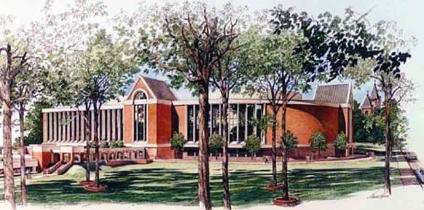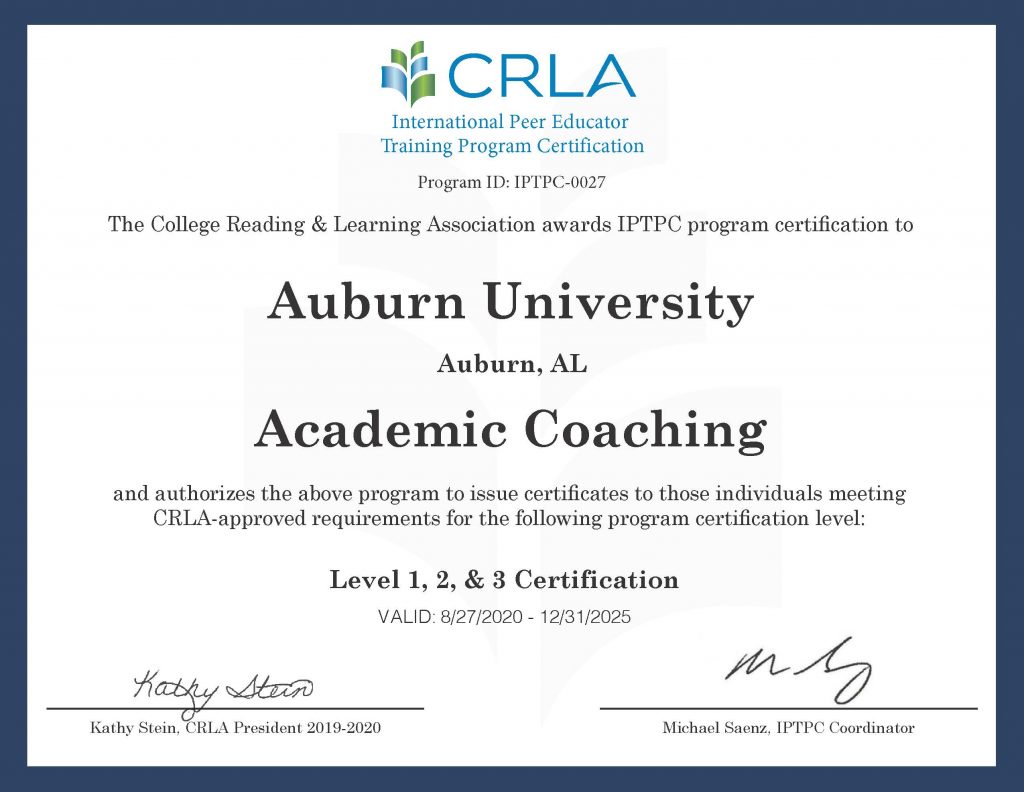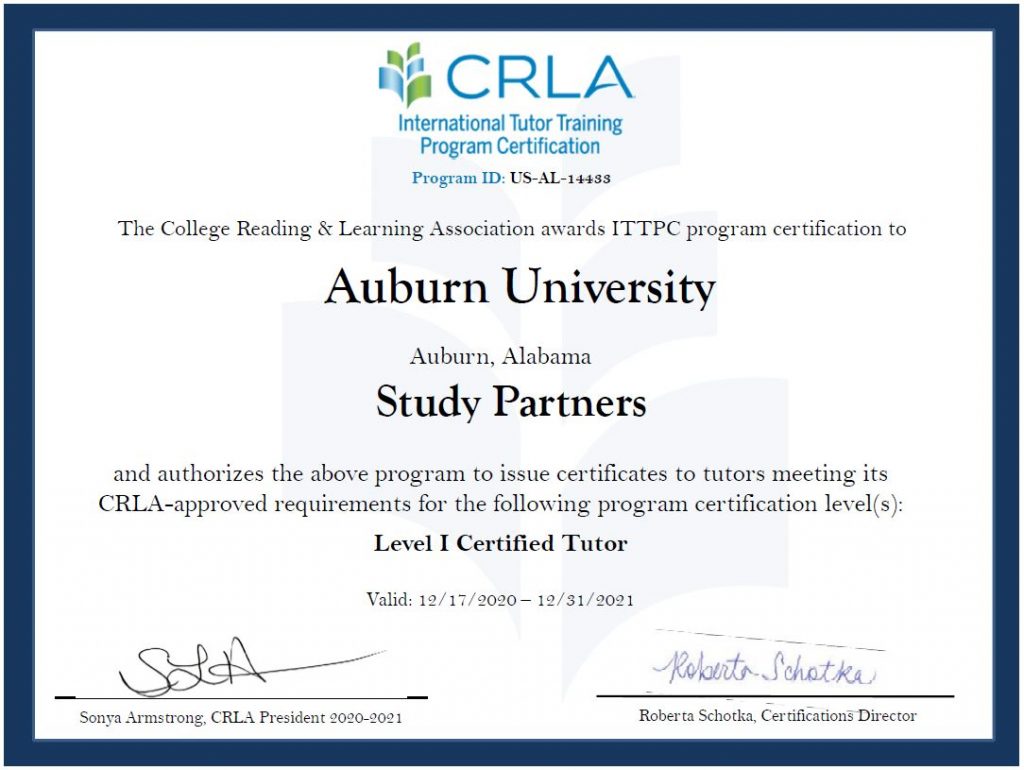In 1997, Academic Support was formed under the leadership of Dr. Kathryn Jarvis. Primarily functioning as the home of undergraduate and graduate entrance exams, Academic Support was very different from what it is today.
The tutoring program, Study Partners, was the first section of Academic Support to form in the 1970s. Formerly located in the basement of Haley Center, Study Partners was highly popular among students seeking course assistance on a drop-in basis. However, as the program continued, it expanded into other disciplines that would benefit students.
A destructive fire in the basement of Haley Center left the Study Partners program without an office, initiating the relocation to the 0176 RBD Suite. Because of the generosity of the Provost, RBD Library, and several donors, Academic Support began operating on the ground floor of RBD Library. Study Partners transitioned tutoring services to the Learning Commons on the 2nd floor and Supplemental Instruction (SI) administration was moved to the Haley Building 2238.

Supplemental Instruction began in 1996 and quickly joined the Academic Support office. The ability to participate in active-review sessions with peers and a SI Leader has been invaluable to many Auburn students.
Another uniquely designed program, Study Smart, is available to students out of the Academic Support. Focused on developing successful study habits, Study Smart has benefited countless students since 1997. It also provided the foundation for Academic Coaching. What began as small group coaching to help students with academic issues, has grown to be an individualized, proactive service designed to empower participants to achieve their academic goals.
In collaboration with the Department of Mathematics and Statistics, Academic Support launched Plainsmen’s Prep in 2016. Under the direction of the former director, Dana Jablonski. The Plainsmen’s Prep program provides qualified incoming first-year students the chance to review mathematics concepts in preparation for a math placement exam. By completing the program, students have an opportunity to increase their math course placement for the fall semester.
In fall 2018, select Academic Support staff participated in the University of Southern California Race & Equity Training, hosted by the Office of Inclusion & Diversity. This training informed the decision to create a gender-neutral dress code for student employees. The staff collaboratively developed this dress code, which was installed in January 2019 for all programs in Academic Support.
While inclusive and equitable practices had been discussed in the context of national standards for learning centers, it was in fall 2018 that staff in Academic Support openly committed to creating inclusive and equitable learning environments. Since then, the staff have worked collaboratively to adjust program design, remove participation barriers, and audit policies, to create spaces that meet this commitment. Actions taken since then include: removing pronouns from intake paperwork (2018), developing a gender-neutral dress code (2019), creating an identity-hidden application process for SI Leader, Graduate Assistant, front desk, and professional staff (2019), shifting from a word-of-mouth recruitment process to a campus-wide recruitment process for student staff (2019), establishing and sharing anti-racist materials and resources with all student employees (2020), updating dress code to prohibit divisive and hateful symbology (2020), and creating a code of representation for student employees to address virtual and remote learning environments as a result of COVID-19 (2020). In addition, professional and student staff have participated in implicit bias trainings, hosted discussions on cultural capital, and questioned the practices of the office – ongoing — to identify ways to increase access and inclusion for all students.
In 2018, the Academic Coaching program was granted the College Reading Learning Association (CRLA) certification level I. The office also organized an accessibility audit of physical and digital spaces in partnership with the Office of Accessibility that same year.

New partnerships were formalized by Academic Coaching program in 2018 to include the Office of Inclusion & Diversity with the Tiger Excellence Scholars program (formerly the Provost Leadership Undergraduate Studies scholars program), Office of Involvement, and Student Financial Services.
In spring 2019, the office completed a program audit informed in CAS Standards for Learning Centers as a result of a Student Affairs program review expectation. The audit resulted in multiple ideas on how to improve programs and services for students. That same semester, two staff in Academic Support participated in the International Center for Supplemental Instruction SI Supervisor Training.
In May 2019, the office was awarded second place for the 2019 National College Learning Center Association Website Excellence Award (national award) and the Campus Partner Award in Student Affairs for partnership with the Registrar’s Office (campus award).
In March 2020, the COVID-19 pandemic forced Academic Support services to remote delivery platforms, primarily Zoom. Academic Support staff worked to adjust all in-person offerings to remote within two business days, resulting in no delays of service to students the Monday after spring break. While this move to remote services was particularly stressful, the staff immediately sought to identify ways to delivery high-quality experiences via remote platforms to inform future programming.
In December 2020, Academic Support staff moved from the RBD Library to the Haley Center after a refurbishment of office space. This move supported goals to be more visible for students, signal helpful behaviors and practices to students walking by, and allow for all professional and graduate staff to be in the same office (which was not possible in RBD Library space).
In December 2020, the Study Partners (peer tutoring) program earned the College Reading Learning Association (CRLA) certification level I for student employee (tutor) training.
